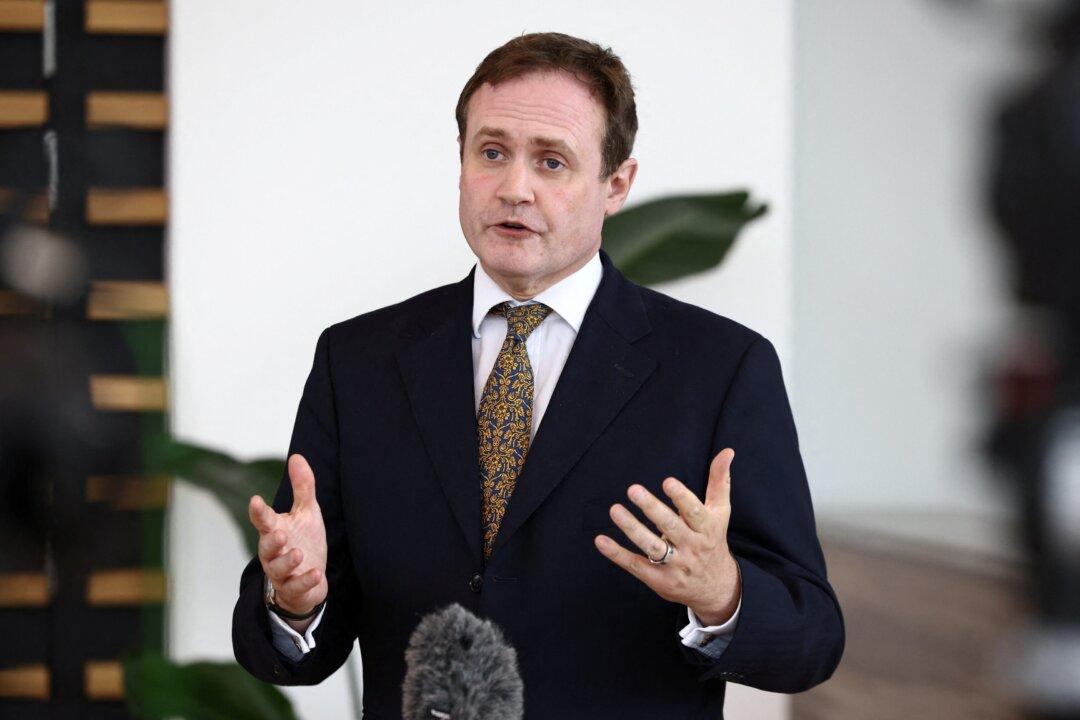Britain’s Security Minister Tom Tugendhat has warned that in the run-up to the next general election large numbers of young voters will be getting their news from TikTok whose editorial board, he said, is comprised of members of the Chinese Communist Party (CCP).
Giving a speech at the Policy Exchange think tank in London on Tuesday, entitled “Defending Democracy in an Age of State Threats,” Tugendhat warned Russia, China, and Iran were all pushing false narratives on social media.





